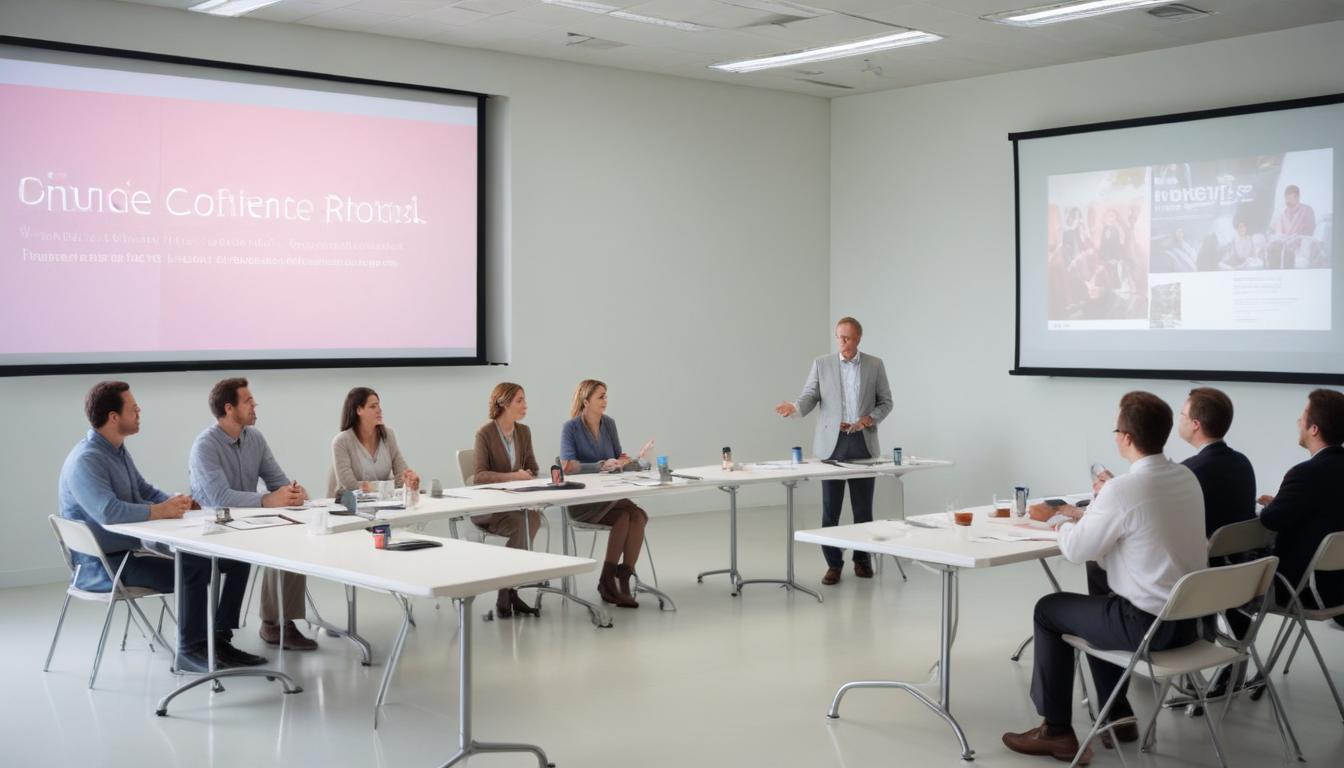ISO Consultants in Qatar: Why Training Centers Should Care (More Than You Think)

You know, running a training center in Qatar today feels like juggling flaming torches—balancing quality delivery, meeting regulations, keeping learners happy, and, of course, standing out in a competitive market. If you’re feeling this pressure, you’re not alone. But have you ever wondered if there’s a secret ingredient that could make this balancing act a little less fiery? That’s where ISO consultants come into the picture.
At first glance, ISO certification might seem like another bureaucratic hoop. Honestly, who wants to add audits and paperwork to an already packed schedule? But here’s the kicker—ISO, done right, is less about bureaucracy and more about building a sturdy foundation that supports growth, trust, and consistency. For training centers aiming to win trust and sharpen their edge, it’s a game-changer.
What Exactly Is an ISO Consultant, and Why Bother?
Let’s start with the basics. Imagine trying to navigate a complex city without a map. That’s what handling ISO standards feels like without a consultant. These pros are like your seasoned tour guides—they know the routes, the shortcuts, and the traps. But they’re not just handing you directions; they’re helping build a custom map tailored to your training center’s unique landscape.
ISO consultants specialize in understanding and implementing standards such as ISO 9001 (quality management), ISO 29990 (learning services), and sometimes even ISO 14001 (environmental management), especially relevant if your center is focusing on sustainability. Their job is to translate these somewhat abstract standards into concrete, workable processes that make sense for your day-to-day.
Why Should Training Centers in Qatar Care About ISO?
Here’s the thing: training centers don’t just deliver courses—they deliver outcomes, reputations, and promises. And in Qatar’s booming professional development sector, competition is fierce. Everyone wants to be seen as credible, reliable, and effective. That’s where ISO certification lends a hand.
Think about it—when a corporate client or individual learner picks a center, what reassures them? It’s the guarantee that the training you offer isn’t just fluff. ISO standards help you prove that your courses, trainers, and administrative processes meet consistent quality benchmarks. This can be the nudge that tips a decision in your favor.
Plus, Qatar’s regulatory bodies and business partners increasingly recognize ISO certification as a mark of seriousness and professionalism. It’s not just a sticker on the door; it’s a passport to bigger contracts, better partnerships, and often smoother accreditation processes.
Qatar’s Training Industry: A Unique Playground
Qatar’s vision for economic diversification means training centers aren’t just nice to have—they’re essential. The country is rapidly investing in skills development, vocational education, and lifelong learning to prepare its workforce for tomorrow’s challenges. But this growth also means more eyes on your operations—whether from regulators, customers, or competitors.
This dynamic makes it doubly important to have robust systems in place. Training centers need to juggle curriculum design, instructor qualification, learner feedback, and administration while complying with Qatar’s Ministry of Education and Higher Education guidelines. Add to that the cultural nuances and language diversity, and you’ve got quite a challenge.
ISO consultants who understand this local mix can help centers build quality management systems that respect local expectations without sacrificing global standards. It’s about being precise yet flexible, rigorous yet relatable.
What Does an ISO Consultant Actually Do? (Spoiler: It’s More Than Checking Boxes)
You might think hiring an ISO consultant in qatar means handing over the reins and hoping for the best. Not quite. These folks become partners in your quality journey. The first step usually involves a deep-dive assessment—looking under the hood of your existing processes, asking tough questions, and spotting where you’re doing well or missing the mark.
Next comes the co-creation phase. This is where the magic happens. Consultants don’t force-fit systems; they help design processes that fit your team’s culture, size, and style. They train your staff, run workshops, and create templates and manuals that actually get used.
And when it’s time for certification audits, consultants help you prepare confidently. It’s not just about passing; it’s about embedding practices that keep your training center effective long after the auditor’s gone.
Does It Have to Break the Bank?
Now, the elephant in the room: cost. Sure, ISO consulting and certification require investment. But honestly, when you weigh it against the cost of poor quality, missed contracts, or unhappy learners, the scales tip quickly.
Prices vary depending on your center’s size, the scope of services, and the consultant’s expertise. Some consultants offer flexible packages—starting with foundational ISO 9001 quality management certification, then layering on more specialized standards like ISO 29990. This phased approach can make the financial commitment less daunting.
Think of it this way: investing in ISO is like buying quality tools. It might pinch the wallet now, but it saves countless headaches and inefficiencies down the road.
What to Look for When Hiring an ISO Consultant?
Picking the right consultant is kind of like finding a great mentor—someone who understands your goals and speaks your language. Experience matters, especially with local knowledge of Qatar’s regulatory environment and cultural fabric.
Look for consultants who’ve worked with training centers or educational organizations before—not just generic quality experts. They should be able to explain standards in plain English (or Arabic), avoiding jargon traps. Their role is to empower your team, not mystify them.
Also, consider their communication style. Do they listen? Are they patient with questions? Do they offer real solutions or just canned responses? These are signs of a good fit.
Certification Is Just the Beginning, Not the Finish Line
You might think getting certified means you’ve “arrived.” Not quite. ISO is about continuous improvement, which means your training center needs to keep evolving.
But this ongoing journey is less scary when you’ve built a culture that values feedback, data, and learning from mistakes. With good systems and trained staff, regular reviews and updates become part of the routine—not a dreaded chore.
In fact, many centers report that ISO certification helps them create a culture of transparency and accountability, boosting morale and learner satisfaction.
Common Pitfalls Training Centers Should Avoid
Let’s keep it real—some training centers approach ISO the wrong way. They treat it as a “tick-box” exercise, involve only admin staff, or ignore the cultural nuances. This often leads to superficial changes that don’t stick.
Also, some centers complicate their processes trying to please auditors, which ironically backfires. Simple, clear, and relevant processes work best—ones your team can actually follow day-to-day.
And don’t rush the training. Staff need time and support to get comfortable with new ways of working. Patience here pays dividends.
Real Stories: How ISO Helped Training Centers in Qatar
Take a Doha-based IT training center that struggled with inconsistent course delivery and learner dissatisfaction. After engaging an ISO consultant and working through ISO 29990, they revamped their needs analysis and feedback systems. Within a year, learner retention improved, and client referrals increased noticeably.
Another example is a hospitality skills center that used ISO 9001 to tighten operational processes, reducing scheduling conflicts and improving instructor accountability. Their enhanced reputation led to contracts with several major hotels in Qatar.
Wrapping It Up: Why Your Training Center Should Care About ISO Consultants
So, what’s the takeaway? ISO certification isn’t just a fancy badge; it’s a powerful tool that helps training centers in Qatar operate smarter, deliver better, and build stronger relationships. Consultants make this process smoother, more relevant, and less daunting.
If you want your training center to thrive—not just survive—in Qatar’s dynamic environment, you owe it to yourself to at least explore what ISO can do for you. Because honestly, isn’t it time your systems worked as hard as you do?


